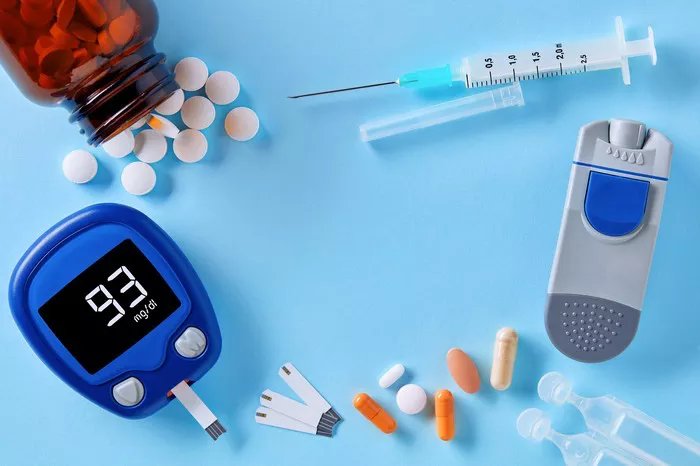A groundbreaking review paper published in the special 50th anniversary edition of the journal Cell on July 25, 2024, offers an in-depth analysis of recent advancements in diabetes research and treatment. This comprehensive study delves into the multifaceted factors that contribute to the onset and progression of diabetes, underscoring the significance of these insights in developing targeted interventions to mitigate the disease’s impact.
The paper, authored by Dr. E. Dale Abel and a team of experts, synthesizes findings from hundreds of studies investigating the causes and new treatments for both Type 1 (T1D) and Type 2 (T2D) diabetes. It explores the interplay of genetic, environmental, and social determinants of health in the development of diabetes and its subsequent effects on cardiovascular and renal health.
The review highlights several key advancements in diabetes treatment that hold promise for curbing the global diabetes epidemic, which currently affects millions. Notably, these advancements could also be leveraged to address other medical conditions. Despite the progress, the review acknowledges ongoing challenges in the field.
As diabetes prevalence continues to rise globally, staying abreast of the latest research developments is crucial for clinicians to provide optimal patient care and for patients to make informed decisions about their health. This review serves as a valuable educational resource that integrates current research and trends in diabetes management, potentially influencing clinical practice as the patient population grows.
Dr. Abel, chair of the UCLA Department of Medicine and lead author of the paper, emphasized the review’s importance: “This review will be the definitive reference for physicians and researchers, offering a cutting-edge update on the current state and future directions of the field.”
Type 2 diabetes, which is primarily driven by poor diet and obesity, accounts for the majority of diabetes cases, while Type 1 diabetes represents less than 5% of cases. As of 2021, approximately 529 million people globally were diagnosed with diabetes, equating to about 6.1% of the world’s population. In certain regions, prevalence rates reach up to 12.3%. Type 2 diabetes makes up about 96% of these cases, with more than half attributed to obesity. Projections suggest that by 2050, around 1.31 billion people will have diabetes, with prevalence potentially soaring to 16.8% in North Africa and the Middle East and 11.3% in Latin America and the Caribbean.
The development of diabetes is influenced by genetic factors, the central nervous system, organ interactions, and social and environmental factors such as food insecurity and air pollution. However, recent breakthroughs offer significant hope for managing and potentially reversing the disease. For instance, a 2019 study demonstrated that a 14-day course of the antibody teplizumab could delay the progression of Type 1 diabetes from stage 1 to stage 3 by up to 32.5 months. This led to the U.S. Food and Drug Administration’s approval of teplizumab as the first disease-modifying therapy for Type 1 diabetes.
Advances in insulin therapy, including optimized pharmacokinetics, algorithm-driven insulin pumps, continuous glucose monitoring, and enhanced self-management tools, have markedly improved the quality of life and outcomes for individuals with advanced Type 1 diabetes. Additionally, stem cell research holds promise for replacing lost insulin-producing cells in Type 1 diabetes.
For Type 2 diabetes, the introduction of three classes of glucose-lowering medications over the past two decades—GLP1RAs, DPP-4 inhibitors, and SGLT-2 inhibitors—has enabled better glucose control without weight gain and with a lower risk of hypoglycemia. Emerging personalized and precision medicine approaches aim to address the molecular mechanisms of diabetes, though they must prove superior to standard care and be cost-effective. The feasibility of implementing these approaches in resource-limited settings remains to be seen.
Combinations of GLP1RAs with other receptor-targeting molecules, such as GIP, have shown enhanced efficacy in treating diabetes. Recent trials also suggest these treatments are effective for obesity, certain heart failures, and sleep apnea, partly due to their weight-loss and anti-inflammatory effects. Ongoing clinical trials are evaluating their potential in treating disorders like Alzheimer’s disease.
The review concludes with optimism about the future of diabetes therapy, highlighting advances that offer hope for preventing or curing Type 1 diabetes and treating Type 2 diabetes in ways that improve metabolic control and reduce the risk of cardiovascular and renal complications. The ongoing development of tools to understand diabetes heterogeneity will pave the way for targeted therapies and prevention strategies, potentially benefiting diverse populations and varying healthcare resources.
The study’s authors include Anna Gloyn (Stanford University), Carmella Evans-Molina (Indiana University), Joshua Joseph (The Ohio State University), Shivani Misra (Imperial College London), Utpal Pajvani (Columbia University), Judith Simcox (University of Wisconsin-Madison), Katalin Susztak (University of Pennsylvania), and Daniel Drucker (University of Toronto).
Funding for this research was provided by various institutions, including the National Institute of Diabetes and Digestive and Kidney Diseases, the National Heart, Lung and Blood Institute, the American Heart Association, and the U.S. Department of Veterans Affairs, among others.
Related topics:
Irregular Sleep Patterns Increase Risk of Type 2 Diabetes
Consistent Sleep May Help Prevent Diabetes, Study Suggests
Massachusetts Lawmakers Propose Free Medications for Asthma, Diabetes, and Heart Conditions



























